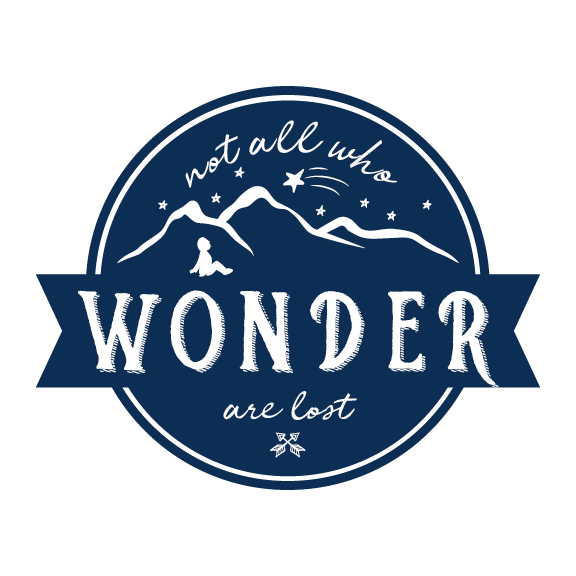Kendall Smith, No-Div
Kendall is an elementary science teacher and an avid lover of books, nature, and long walks. She is easily distracted by thunderstorms and loves a good conversation over coffee.
Back in April of 2020, I developed this routine of going on walks three times a day. You have to remember, this was the height of the pandemic, and it was a gorgeous spring. I would take a morning walk, an afternoon walk, and an evening walk. These walks became an important rhythm in my day--and I quickly found a podcast to listen to while walking. I somehow stumbled upon Annie F. Downs and her friend, Eddie Kaufholtz* (“Spelled just like it sounds!” says Eddie) as they talked about random, silly and serious things each morning. It was their way to survive what we all hoped would be a few short weeks at home. I soon started to refer to Annie and Eddie as my BFFs because their banter would both entertain me and teach me during those difficult days at home.
One day, I remember Eddie making a comment about how he is “dripping in privilege”. As a white, educated man in America, he was acknowledging the fact that he had access to whatever he needed and usually, whatever he wanted. It was all at his fingertips. This word, privilege, is one I didn’t quite know how to use before hearing Eddie use it. But there was certainly a debate going on in my head for years about Joel’s and my situation: Like many of you who are reading this, we both had jobs, a vehicle, and a house that we owned. We had money in the bank (at least a little!) and were surrounded by people we knew and loved. In my head, I’d try to understand why we had and others didn’t. Did we earn all of this? Did we work harder than them to get it? Were we just lucky? Much like the s-word I used last week, I also kind of hate the b-word. Had God simply blessed us for our obedience? But if we couldn’t say we were blessed, then to what do we owe our financial stability, good jobs, opportunities, and our house in a nice neighborhood?
Eddie’s use of the word privilege was both disarming and helpful for me. I hadn’t heard many people admit that their success was at least partially the result of privilege--but for us, it seemed to be true. I certainly hadn’t worked harder than other people I knew. In fact, I taught in an elementary school for my first 6 years as a teacher that was very ethnically diverse--we had the highest ESL (English as a Second Language) stats in our district. The families I had come to know and love at this school were some of the hardest working people I knew! And yet, many of these families lived in a trailer court down the road, or in a home with extended family to make ends meet.
Why does this word privilege turn so many of us away? Why do we avoid it so much?
Admitting that we are privileged is actually pretty difficult to do. It means recognizing that we may not be able to take full credit for our success in life. It means that the way of the world may not be as neat and tidy as we think. Some of the slogans we can easily throw around may actually be false. Pull yourselves up by your bootstraps! Work harder than the next guy! Early bird gets the worm! It’s the American Dream!
Maybe it’s more gray than we would like to admit. Maybe there are some systems in place that give some people more access to opportunity at the expense of others. What if we have been the beneficiaries of this kind of system?
This isn’t a comfortable place to sit. It feels messy. Guilt and shame can creep in. Our defense mechanisms may jump in, trying to remind us that we haven’t had it easy either! But admitting our privilege is a necessary step--even if it creates some difficult feelings. As Wendell Berry points out, “once you begin to awaken to the realities of what you know, you are subject to staggering recognitions of your own complicity in history and in the events of your own life.” David Swanson** puts it like this: “...though the awakening is painful to those of us accustomed to slumbering through this racialized society, though we will be strongly tempted to return to our illusions of meritocracies and colorblindness, if we choose to make peace with the pain and resist the slumber, we will find ourselves waking up to the reconciled kingdom of God.”
Make peace with the pain...resist the slumber. This is perhaps the first step towards this “reconciled kingdom of God”. We admit that the world is deeply broken. We acknowledge that we are both the hurt and the hurt-ers. And together, as the Body of Christ on this Earth—we rejoice that God’s specialty is making broken things new again.
May we sit with the pain and anxiety long enough to let it do its work in us.
May we open ourselves to the slow, far-reaching and cleansing work of God.
May we have courage to enter into the lives of those whose experiences are different than our own.
May we humbly learn from those on the margins.
And may we recognize the ways the Spirit is leading us to live lives that better reflect God’s Beautiful Kingdom.
*Eddie Kaufholtz has an incredible podcast, “The New Activist”.
**David Swanson wrote Rediscipling the While Church: From Cheap Diversity to True Solidarity


